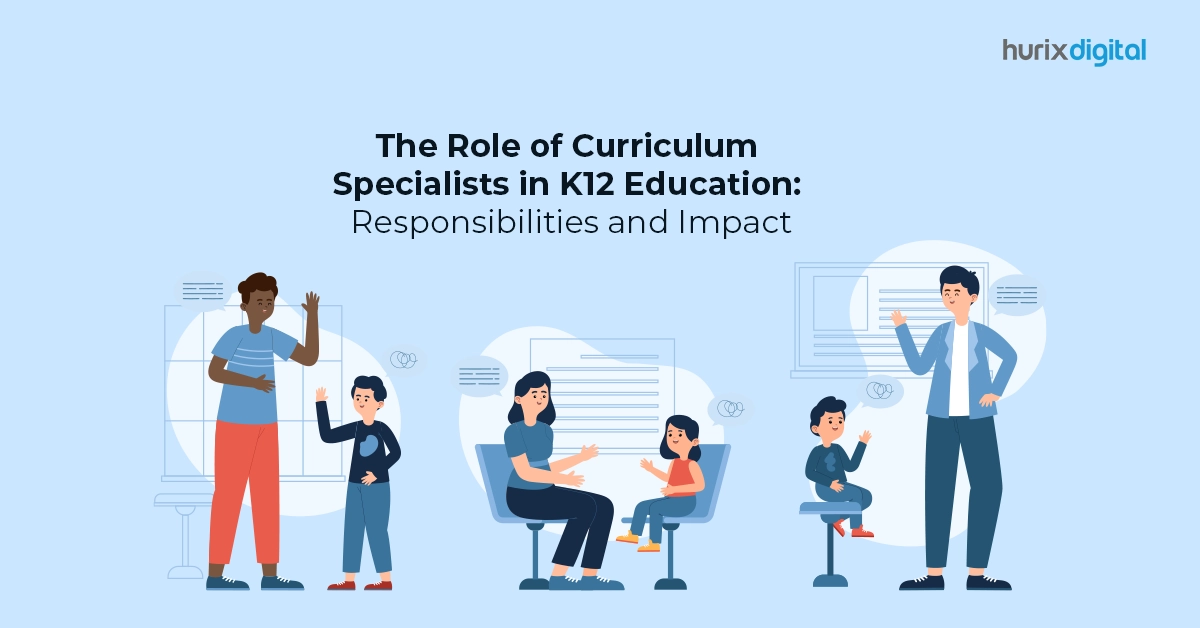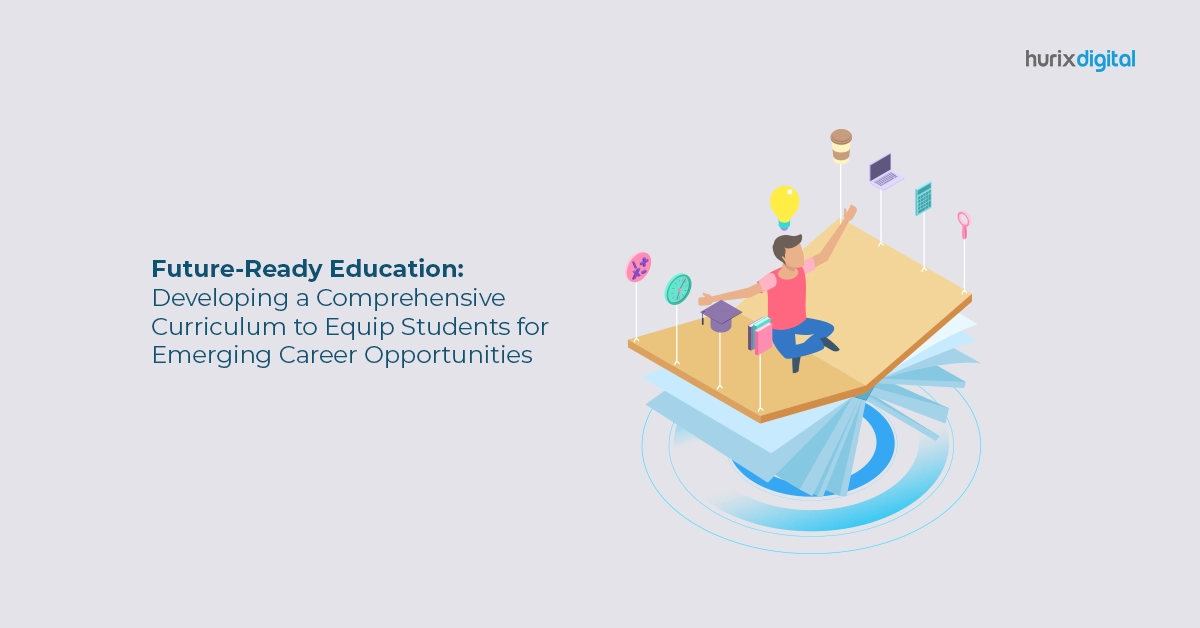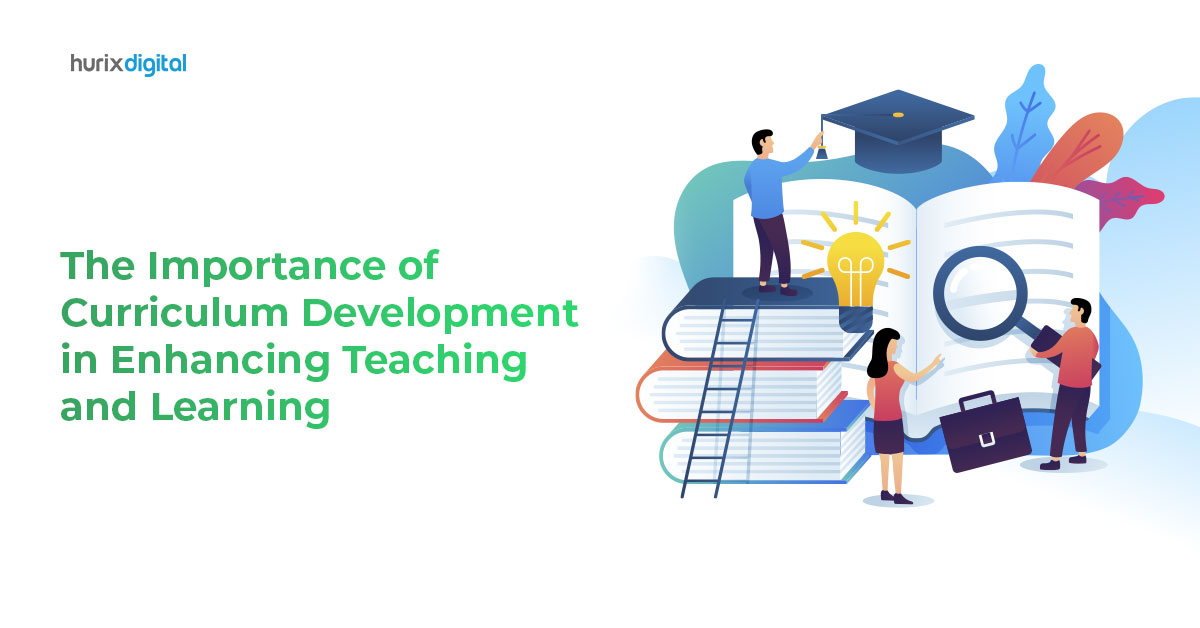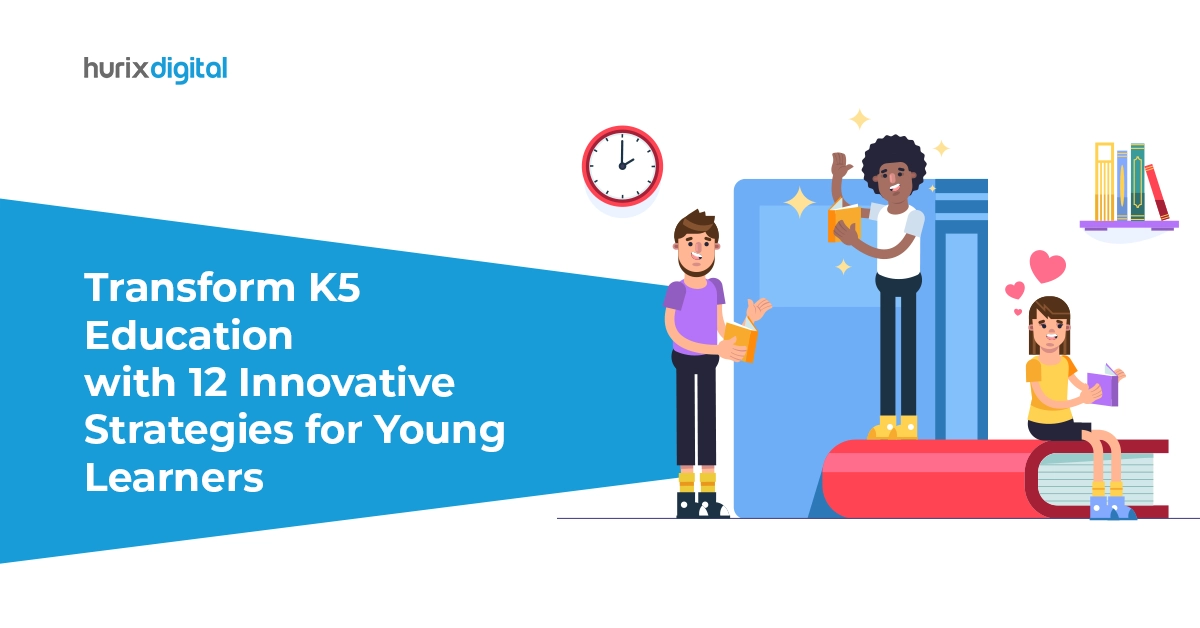
The Role of Curriculum Specialists in K12 Education: Responsibilities and Impact
In recent years, K12 education has changed a lot because of technology. Personalized learning has become important for meeting each student’s needs. But with all these changes, creating the right curriculum has become even more crucial.
While embracing technology-driven learning methods and tailored instruction is vital for enhancing student progress, the growing array of delivery options and variables has made curriculum design more intricate than before.
In this context, curriculum specialists play a crucial role. They not only design and develop curriculum frameworks but also adapt them to align with evolving educational standards and technological advancements.
In this article, we’ll explore their roles and responsibilities and understand how they contribute to shaping the quality of K12 education. Let’s dive in!
Table of Contents:
- A Brief Introduction to Curriculum Specialists
- Responsibilities of Curriculum Specialists
- Four Key Ways Curriculum Specialists Enhance K12 Education
- Final Words
A Brief Introduction to Curriculum Specialists
In the realm of K12 education, where curriculum design comes with intricacies, curriculum specialists emerge as key players in shaping and upholding effective educational outcomes.
Their role involves close collaboration with educators, administrators, and leadership to continuously refine the learning framework by institutional guidelines, organizational objectives, and learners’ diverse needs.
The essential prerequisites for becoming a curriculum specialist often start with a mandatory bachelor’s degree in education. Additionally, with extensive experience in teaching students and administration, professionals will gain the relevant skillset required for curriculum design.
Also Read: Empowering Every Student: Customizing K12 Education for Individual Growth and Success
Responsibilities of Curriculum Specialists
Here are five key responsibilities that a curriculum specialist carries out as a part of the K12 education framework:
1. Curriculum Development
The fundamental responsibility of a curriculum specialist is designing and regularly updating educational programs. As the needs of learners are constantly evolving variables, a curriculum specialist spearheads the task of setting the structure to align a learner’s needs with relevant academic standards.
They are also responsible for keeping the curriculum’s constant development incremental and stable to minimize resistance to change and eliminate any fluctuations in learning curves for educators and learners.
2. Professional Development
While curriculum design is crucial, the design must be executable. A curriculum specialist must ensure that educators’ skill sets are updated in tandem with curriculum growth. This often entails providing educators with relevant training and supporting them to enhance their practice.
Curriculum specialists are responsible for one key aspect of professional development: helping educators effectively integrate new teaching methodologies and the latest technologies into their practice.
3. Data Analysis
While analyzing educational data is part and parcel of the curriculum design process, specialists are responsible for identifying learning trends and assessing student performances. This data is used directly to improve curriculum design but also has a purpose in the bigger picture.
The data analysis executed by a curriculum specialist also provides an essential insight into possible changes in the ever-developing learner’s needs. It can, in turn, be used to steer an educational institution’s business model and framework.
4. Assessment and Evaluation
With all this design and professional development, an institution’s feedback system must be robust.
Curriculum specialists also develop assessment tools to measure learning outcomes. This ultimately helps specialists evaluate the impact of their strategies and can be used as a reflection of their progress toward organizational goals.
This is one of the most crucial responsibilities of a curriculum specialist, considering that it allows for self-improvement and measures the overall pace of development in K12 education.
5. Collaboration
Collaboration is a big part of a curriculum specialist’s role. They use their people skills to make sure everyone is working together smoothly, from planning to putting lessons into action.
By working together, curriculum specialists help create a curriculum that meets the needs of students while also aligning with the school’s objectives and standards. It’s like building a puzzle where every piece fits together perfectly to create the big picture of effective education.
Four Key Ways Curriculum Specialists Enhance K12 Education
Here are the four main advantages that curriculum specialists bring to K12 education:
1. Personalized Learning Enhancement
With approximately 49.4 million students enrolled in primary and secondary education, it’s clear that each student possesses unique needs and learning styles.
Curriculum specialists recognize this diversity and tailor learning experiences to suit individual students, ensuring that each learner receives personalized attention and support.
2. Technological Relevance
Curriculum specialists stay on top of technological updates with extensive data analysis. As data analysis is part of their core responsibilities, they review learners’ current needs and identify the technologies and resources that need to be implemented.
By integrating data analysis with curriculum development and collaborating closely with IT design teams, these professionals ensure that each personalized learning module remains current and dynamic. This proactive approach eliminates the risk of obsolescence, guaranteeing that students have access to cutting-edge resources tailored to their educational journey.
3. Consistent Alignment with Standards
As drivers of the curriculum frameworks, curriculum specialists align learning modules with state and national educational standards and the organization’s unique vision.
With this being the specialist’s benchmark and foundation behind curriculum design, all forms of learning content are crafted and delivered with high consistency and quality across schools and branches.
Standardized delivery also improves the reliability of data that a curriculum specialist derives from performance trends, eventually boosting the accuracy of all estimations regarding learners’ growing needs.
4. Organic, Data-Driven Improvement
With high engagement and a focus on how educators and learners react to the current curriculum, curriculum specialists can develop better designs while considering cultural feedback, scientific performance indicators, and responses to incremental changes that work in tandem with technological integration.
Curriculum specialists drive continuous improvement by focusing on professional development, best practices, and potential innovations. This iterative process of refining educational content is not only organic and empathetic but also rooted in data, ensuring that each adaptation is informed by real-world feedback and geared towards enhancing student outcomes.
Also Read: Ethical Considerations of AI in K12 Education: Navigating the Future of Learning
Final Words
The role of curriculum specialists extends far beyond mere curriculum development. They ensure that the curriculum remains technologically relevant, empower educators with the necessary skills, and possess the foresight to anticipate changes in learners’ needs. Their role is both indispensable and challenging, requiring expertise and dedication.
This highlights why every educational institution stands to benefit from partnering with experts like Hurix Digital. Our team is adept at developing tailored solutions that not only conserve resources and time but also result in a curriculum perfectly suited to your learners’ needs.
Get in touch with us today to take the lead in educational innovation.

Senior Vice President
A Business Development professional with >20 years of experience with strong capability to sell new solutions and develop new markets from scratch. New Market Entry Specialist with experience of working in two of the largest emerging markets – China & India. Also covered other key markets in APAC, US, EU & ME. Exceptional experience of conceptualizing, ideating and selling new learning technologies like VR AR, etc. across multiple industry verticals.











